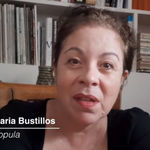The new call for proposals goes live, updates and an abundance of grant reports. Plus info sessions and a community call next week!
The new CFP is officially live!
In continued service to our mission, we are excited to announce that our latest Call for Proposal: LP-Based Financial Services is now live. It will be open through Friday, July 8.


Announcing Grants for Interledger Protocol-Based Financial Services
Julaire Hall for Interledger Foundation ・ May 19 '22
The Interledger Foundation is allocating $1.5 million USD in grant funding to organizations with an interest to build financial nodes in the Interledger Network.
We encourage companies, NGOs, educational institutions, government agencies, or other documented collectives across the globe with innovative ideas and solutions for Interledger Protocol (ILP) enabled financial services to apply.
Stay tuned for more details on the Interledger Foundation’s website and community forum for more information on the current call for proposal’s eligibility requirements, application form, live information sessions, and any other additional information.
All are welcome to the Interledger Slack and join the #cfp-financial-services channel or reach out to us at info@interledger.org if you have any questions.
Join an info session


Join one of the upcoming new ILP Financial Services CFP Info Sessions Hours
Ayesha Ware for Interledger Foundation ・ May 19 '22
Now that the new Call For Proposals is live! We invite you to attend an info session to learn more about the new ILP Financial Services CFPcgrant opportunity. We will hold three information sessions (May 25, May 26 and May 31) where we will walk through the Call for Proposals, share useful tips for applying and answer questions.
Each session will cover the same material but be at different times for timezone equity.
These sessions will be recorded and shared publicly once completed. We will share an agenda closer to the events.
You can register here for one or more sessions.
GftW Awardees grants reports are streaming in!
Maria Bustillo for project The Brick House Cooperative progress report highlights new publishers and rolls out new site design

The Brick House Cooperative: The Ownership Project for Libraries — Grant Report #1
Maria Bustillos ・ May 18 '22
STARTING OUR ENGINES
On Monday, May 16th, we began rolling out The Brick House’s beautiful, exciting, long-planned site design, thanks to the generosity of Grant for the Web. Sludge’s David Moore, Hmm Weekly’s Joe MacLeod and Brick House lead developer Jacob Ford worked together, to:
• Incorporate the current proposed Web Monetization API across the Brick House network to encourage microtipping flow from participating browsers and patrons, and
• Create a lively, engaging design that integrates our cooperative and promotes its goals, providing readers with much clearer, more tempting options for reading, participation and support for our work as independent journalists, editors and artists.
Jacob also began research into more standardized typologies for written content—consulting with Hugh McGuire and others working on the OPDS/BookServer open specification—so content can more easily be packaged, syndicated, and and remain beautifully and appropriately formatted, no matter its original medium or CMS used for initial publication.THE BRICK HOUSE CONTINUES TO BE EXCELLENT TO READ
Our grant permitted Brick House publishers to fund new journalism, art and essays from all over the world. A small selection of recent favorites:
• At OlongoAfrica: grappling with the future of the post-colonial museum in Nigeria, and a eulogy for the “doyen of African linguistics,” Ayọ̀ Bámgbóṣé
• Preachy's meditations on the Trinity River in north Texas
• Uncanny correspondences: Batman vs. NFTs considered at Hmm Weekly, plus the all-American opening day of Hotdog Season
Tessel for project MicroMemberships focuses on the potential of small recurring payments as an open and fair business model for groups of artistic content creators in progress report

MicroMemberships - Subscriptions for values based content and services — Interim Grant Report
Tessel ・ May 16 '22
Hey Community! We at Waag, Amsterdam, are excited to share our progress on the MicroMemberships project. MicroMemberships (possibly facilitated by the web monetization standard) focuses on the potential of small recurring payments as an open and fair business model for groups of artistic content creators. The core question is how – and in what shape – MicroMemberships contribute to an open, fair and inclusive internet and how these can be used by content collectives and their audience.
Project Update
Overall, the project is going quite well. It evolves at a slightly slower pace than expected, because it took us some time to really get a grip on the complexity of the concept of MicroMemberships. We have decided to work on the project in a dual process. We are on the one hand comparing MicroMemberships to existing businessmodels and technical solutions and on the other hand iterating our concept with different users/artistic makers (experiencing problems with currently existing web monetization options).
In the past months we have focused on pealing of the layers of MicroMemberships as a concept, and we have designed a mock-up interface of MicroMemberships (see below). The mock-up allows us to discuss the social and financial aspects and technical stack of MicroMemberships with artistic makers. Simultaneously, we are working on a blog series that reflects these discussions and preparing for a public event to discuss the findings and questions that arise during our exploration. Over all, the world of web monetization keeps us busy, interested and motivated.
The exploration builds upon MicroDonor, in which we focused on the potential of microdonations for (open-source) makers and organisations that try to operate according to public values. One of our findings in the MicroDonor project was that microdonations are merely complementary to other revenue models, as they do not generate structural support. MicroMemberships might tackle this problem because they provide a more stable income flow.
Our previous research also suggested that so-called ‘content collectives’ could counteract the perverse incentives of the commercial internet. In collectives, makers of low volume but high-quality work (or content) could bundle forces. It would not only provide a way to create new values-based networks, but also diminish the precarious position of individual creators on the labor market.
David Benoit for project Sum Assembly Accrue wins and find success in progress report


Accrue: Commercial Viability and Required Infrastructure for Direct and Flexible Payout Options — Grant Report #1
David Benoit for Sum Assembly ・ May 17 '22
Project Update
Price negotiations have been a big win for SumAssembly - we’ve asked for the moon and gotten halfway there. All cost assumptions in our original estimations have been lowered.
In doing our research on the partner ecosystem, we found that a few partners we initially identified were not as robust in their offering as other companies that we were not at that time aware of. Doing extra research at this stage has gotten us to a better selection of partners at lower cost than initially thought possible.Progress on objectives
For this research project, we defined success as identifying and engaging partners to serve significant geographical areas while addressing regulatory, cost, and operational requirements.
By this definition, we have had quite a bit of success. Payouts are hard not because the ultimate movement of money is hard; rather, it’s hard because of all of the partnerships and requirements that are necessary. Nobody in payments does anything alone, and forming these important relationships takes time. This has been by far the most time-consuming part of the project, but we have had success in getting to the “verbal agreement” stage with almost all partners.
We have determined ideal partners and secured verbal commitment in the following categories:
- Money movement
- Treasury management (foreign exchange, etc.)
- KYC processes
- User bank deposit information We have completed money movement, treasury management, and KYC workflows and ensured that these flows pass regulatory and compliance checks. KYB workflows are still outstanding.
Mark Boas for project [Hyperaudio for Conferences] shares final report


Hyperaudio for Conferences — Final Report
Mark Boas for Hyperaudio for Conferences ・ May 12 '22
Project Update
Creating a completely new platform for conferences was always going to be a big lift – it certainly took more time and resource than we anticipated. That said, our team is really happy with the results.
It looks the part, works well and we feel that we're ready to take things to the next stage. There's a lot to report so apologies in advance for the length of this post ☕
A Quick Recap
Hyperaudio for Conferences is a platform that aims to maximise the accessibility of conference content, while opening up new possibilities to repurpose that content.
We use machine generated transcripts and translations to increase accessibility, resulting in Interactive Transcripts and captions.Although we're seeing huge improvements, the results of speech-to-text based algorithms are never entirely accurate and so we provide an intuitive editor to allow people to modify transcripts and translations.
Click each link above to read the full reports, learn more about each project and leave a comment or ask a question.
More Grant Reports!
This week there was a nice influx for grant reports from projects PipeWebMonetization, Helping Small Businesses Adopt Web Monetization, New Universe, Gib, gFam.live, Webmonitization for Podcasting, Gradual , and Edanuso Consult. Use the hashtag grantreports to read their reports.
And many thanks to Mark Boas for being a Grant for the Web awardee!
Community Events
Join us on Monday on May 23, 2022 at 2:00 pm EDT / 6:00 pm UTC for the Community Call hosted by Grant for the Web awardee Erika Kitzmiller on May 23, 2022 at 2:00 pm EDT / 6:00 pm UTC.
To register: https://www.eventbrite.ca/e/329267206077
Erika Kitzmiller and Steven Goss, advisors for the 11/30 Youth Collaborative (formerly known as Central PA Info Hub ) will provide an overview of the project and invite attendees to discuss the potentials and limitations of web monetization for grassroots, community-based projects.
Header Image by Alexas_Fotos from Pixabay





Top comments (0)